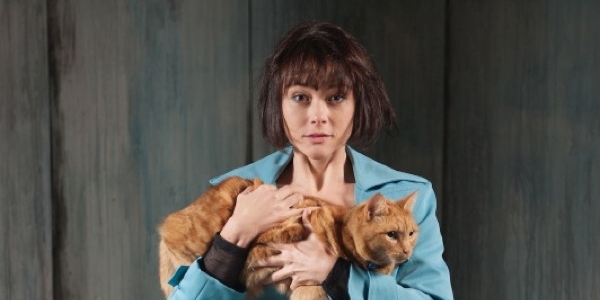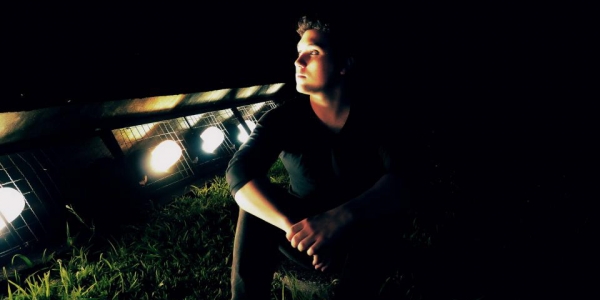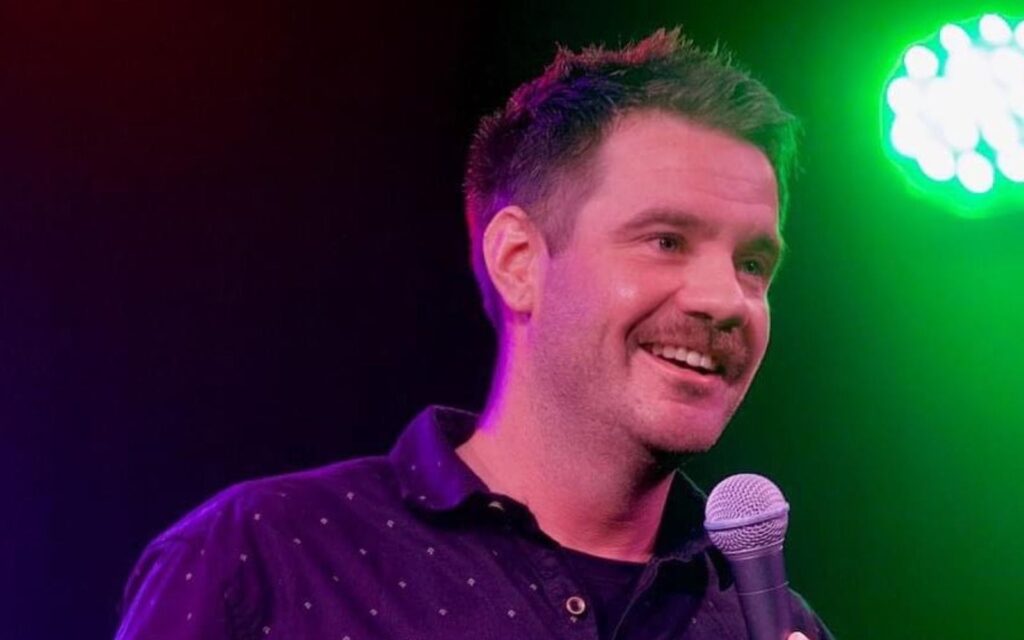Fair describes the part as her dream role and is forthrightly fond of her inexhaustible alter ego. “She’s wild, she’s beautiful and she wears her heart on her sleeve. I hope that you can’t help but like her even though she is incredibly self-centred. It’s exhausting, I’ve never played a character that’s so consistently exhausting. She just doesn’t stop.”
Justine is struggling under the pressure of her job as she is squeezed between an overzealous boss and the rising cohort of interns she refers to as ‘the trust fund brigade’. Justine brings the world of London and her workplace into the apartment that she shares with Michael. It is only in the comfort of their codependency that she can drop her facade and truly be herself.
Michael is an agoraphobic who works from home pretending to be a woman and offering phone sex to men. “Lucinda describes the characters as two cats, scratching around in the same basket. Justine just scratches and scratches and Michael waits there to pounce,” says Fair.
The play’s London location lends a big city feel. Justine complains constantly about how oppressively dark it is – dark when she gets up and dark when she gets home. Fair relates to the claustrophobia of city life and remembers her own time in London, where she would take the cramped Tube to a cramped apartment, which she shared with nine others.
“They converted this tiny linen closet into a shower. It was so small, you couldn’t shave your legs in there and you’d have to reach out for the shampoo and stuff. I was really young, there was lots of gross guys who just partied and played Xbox all the time.”
Although she had done some acting as a child and during her adolescence, at that time it was more of a dream fantasy dwelling in the back of her mind. “I was told by a lot of people how hard it was, that it was really tough and I thought, ‘Would I dare?’ I think I made it a bigger deal in my head than it actually is. When I got back to Melbourne I felt more in my comfort zone and I started getting really stuck into it,” she recalls.
Red Stitch is one of Australia’s most successful independent theatre companies. It has a unique ensemble structure and is managed largely by actors. Fair joined in 2011 and is grateful to have an acting home. “You spend years floating around going from job to job, everything’s temporary and you know it’s going to end. It’s nice to have a base where you’re actually in control of the work that you do. It’s quite grounding for an actor to have that kind of support.”
There was some controversy when Herding Cats was selected for the program because of its dark themes, but for Fair these made it all the more compelling. “I am discovering that the writing is faultless the more time I spend with it. Often I get a play these bits jump out at you and you’re like, ‘How am I going to make it work?’ There’s nothing like that in this play; everything makes sense.”
There is a theme that runs throughout that examines the effects of technology on human separation and the way that the worlds we inhabit can isolate us. It looks at how people cope under the pump. “How do you deal with anxiety and loneliness? Do you stress and let happen or do you fight against it.”
The play brings together a cast of bizarre characters, all of whom are reaching for, but struggling to find, a human connection. “Justine sort of head butts her way through life and when you do that everything can kind of catch up with you. Suddenly you’re faced with the state of the world that you live in and the way you’ve been behaving,” says Fair. “It can be devastatingly hilarious or just devastating depending on what mood you’re in.”
In Fair’s opinion it is this dark sense of humor that is the play’s saving grace. “When I read it by myself I didn’t realise how funny it is. Then when we had our first read I realised it’s hilarious, it wasn’t until I heard it out loud.”
Herding Cats confronts audiences with the malaise of the modern condition. “Even if you don’t want it to, it will strike a cord, probably exactly where you don’t want it to. It’s a hard show to pin point, it’s enigmatic. I guess the main thing is loneliness. I’m hesitant to say it’s about loneliness because that sounds like a boring play and it’s anything but boring.”
BY JOANNA ROBIN







